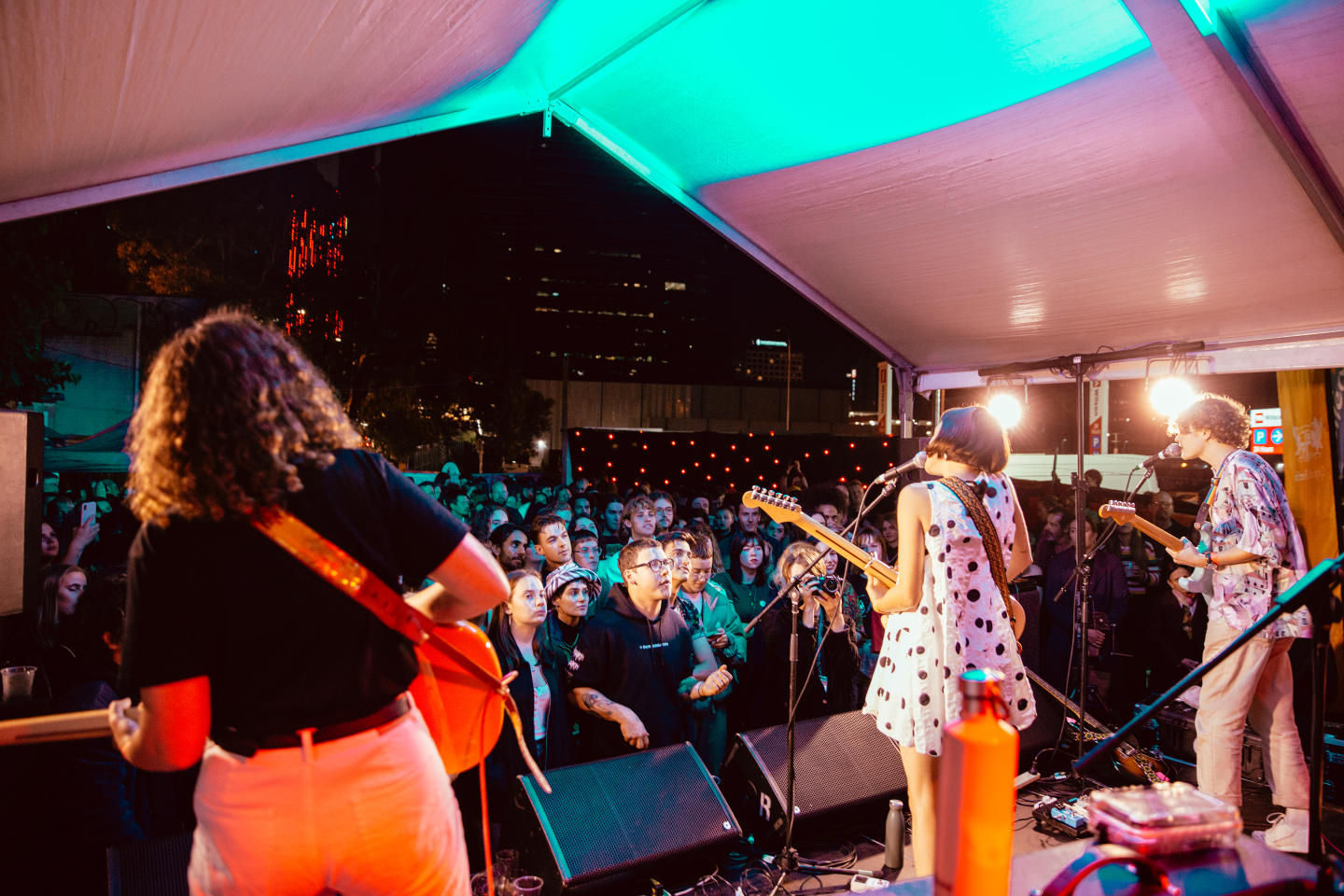WA musical acts have a long history of elevating the state’s cultural offering to a global stage.


WA musical acts have a long history of elevating the state’s cultural offering to a global stage.
Psychedelic rock group Tame Impala’s astonishing rise from a South Fremantle rehearsal room to become an international phenomenon is a recent version of a familiar tale for those associated with the Western Australian music scene.
In fact, such successes have been so frequent that director Aidan O’Brien was inspired a decade ago to create the documentary Something in the Water to examine how such an isolated capital city continues to produce so many internationally successful acts.
The film followed the rise of a wide range of successful WA bands spanning several eras, from The Triffids and The Scientists of the late 1970s to Eskimo Joe and John Butler Trio in the early 2000s.
West Australian Music chief executive Mike Harris said the cycle was repeating in contemporary times, with Tame Impala not alone in its rise to international prominence.
“There is Pond, Birds of Tokyo, we have Stella Donnelly coming through, Carla Geneve, Troye Sivan, and I’m probably missing a few, but the scene is so strong at the moment,” Mr Harris told Business News.
“The whole scene in WA is so collegiate and supportive – you’ll always see in the crowd people from other bands going to see bands.
“That collegiality or collaboration in a sense is really important.
“I suspect it’s something to do with the isolation that people seem to pull together, whether they think about it or if it’s just something inherent that people do.”
Mr Harris said of all art forms, music was possibly the most accessible for the biggest number of people, particularly the rise of streaming platforms such as Spotify and Apple Music.
And with that global reach, Mr Harris said musical acts had the most potential of any art form to elevate WA’s cultural offerings.
“If you walk down the streets of New York, London or LA, and ask people to name a WA artist, musical or otherwise, they are more likely to be able to name a WA musical artist,” he said.
“Music does put us on the map – WA in many ways can be defined by our musical output.
“The Triffids, unfortunately for them, were bigger overseas and interstate than what they were here.
“I was watching the Guy Ritchie film RocknRolla the other day, and I said ‘hold on, that’s The Scientists’.
“Dave Grohl would say that The Scientists influenced Nirvana.
“Things that we’ve done here locally influence so many people in other places and I think there is a pride in that, in the way that people can look at WA not just as the world’s most isolated capital city, but a place with great creativity.
“There are a whole lot of things that culturally puts us on the map; but then you can drill down and I think music jumps out of that, and has done for a long time, as a really strong cultural identifier for WA.”
The rise to prominence of WA-grown acts comes at a time where the local live music offering is midway through a revolution.
Mr Harris said while the demise of long-running festivals such as the Big Day Out had taken away opportunities for exposure, other organisations such as local government authorities and the Perth Festival were stepping into the void.
“The evolution of festivals has seen broader opportunities for a broader range of acts,” Mr Harris told Business News.
“Now festivals are more niche, which means often there are fewer stages and fewer people. It’s an evolution of what people want.
“They want fewer stages, and I don’t think people want to be one of 40,000 any more.
“At a Big Day Out, a similar array of acts tended to land at those festivals.
“I think the niching or the boutiquing of festivals has probably been healthier for a broader range of artists.”

Mike Harris says music is a key element for any city to establish and demonstrate its cultural identity. Photo: WAM
Looking to the future, Mr Harris said while venues such as RAC Arena and Optus Stadium were important to lure international acts to the state, they did not provide much opportunity for local acts.
However, attracting a band like U2 to Perth was a crucial aspect in developing the next round of international superstars, he said.
“The big stadia are good, anything that activates an interest in music is good,” Mr Harris said.
“The job is then to either convert or draw from people going to see U2 at the football ground to explore more local stuff.
“For us, the biggest thing affecting music, like any art form, is the next generation.
“What does the next generation of audience look like and what does the next generation of artist look like?
“To ensure that the next generation is thinking about music and not only seeing it as an interest and a love, but a potential pathway to employment, is important, so any touch points for music is great.”















